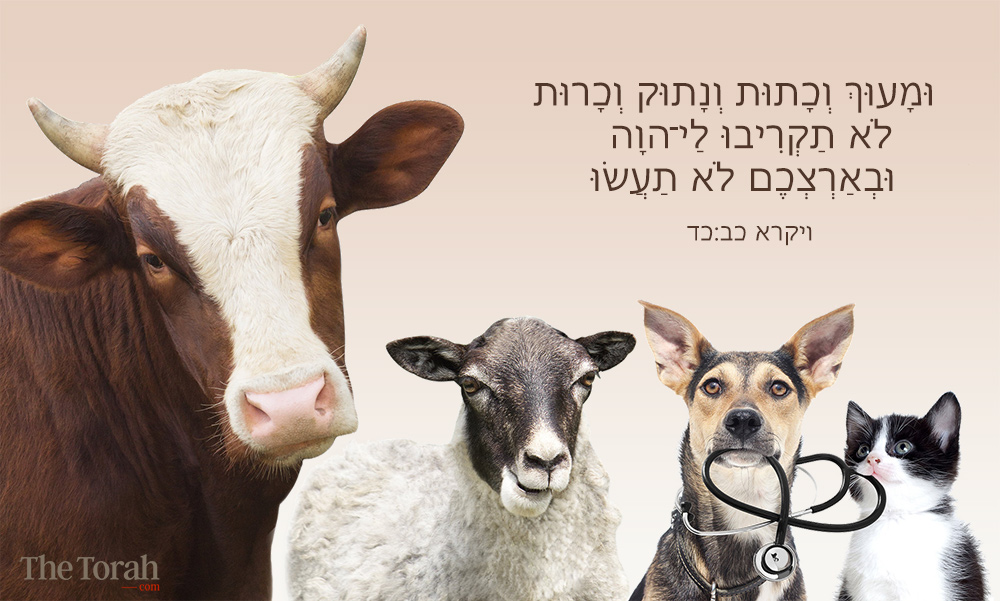The intersection of religion and the humane treatment of animals is a profound topic worthy of exploration. In discussing whether Jewish law forbids cruelty to animals, one must engage with the ancient texts, teachings, and philosophical underpinnings that have guided Jewish thought throughout the centuries. What if, for a moment, we pondered a playful question: does the Torah serve as a guardian of animal welfare, or is it merely an ancient artifact indifferent to the plight of non-human beings? By delving into this subject, we can uncover a tapestry of commandments, narratives, and ethical considerations that suggest a more nuanced understanding of how Jewish law addresses the treatment of animals.
Jewish law, or Halacha, comprises a comprehensive system of ethical, moral, and legal principles derived from the Torah and subsequent rabbinic literature. A central tenet of Jewish teachings is the concept of tsaar baalei chayim, which translates to the prohibition of causing unnecessary suffering to living creatures. This is a cornerstone principle that inherently acknowledges the sentience of animals and their capacity to experience pain.
One of the earliest references to the humane treatment of animals can be found in the Torah itself. In Exodus 23:5, one reads: “If you see your enemy’s donkey falling under its load, you shall refrain from abandoning it; you must help him with it.” This injunction to assist a suffering animal, even if it belongs to an adversary, encapsulates the ethical imperative inherent in Jewish law. The underlying message is clear: empathy and compassion extend beyond the human realm and embrace the welfare of animals as well.
Another significant source is the prohibition against working an animal beyond its capacity. In Deuteronomy 25:4, the Torah states, “You shall not muzzle an ox while it is treading out the grain.” This directive not only serves to protect the animal’s natural behavior but underscores the idea that animals possess innate rights, worthy of respect and care.
Furthermore, Halacha includes specific guidelines about the treatment of domesticated animals, particularly in relation to their care, feeding, and shelter. A rabbinic maxim that sums this up states, “a person is obligated to provide for their animal’s needs.” This obligation goes beyond basic survival—it imposes a moral duty to afford them comfort and humane treatment. The notion of derech eretz, or the way of the land, seeks to instill respect for all of God’s creatures, nurturing a culture that values kindness and eliminates cruelty.
However, the question arises: how do these ancient laws translate to contemporary practices? In today’s society, the rapid industrialization of agriculture and animal husbandry has led to scenarios that might starkly contradict the principles laid out in sacred texts. The challenge lies in reconciling these timeless teachings with modern practices that often prioritize profit over ethical treatment. Do modern Jewish communities embrace an interpretation of the law that advocates for reform in these unreconcilable practices, or do they adhere to interpretations that allow for leniency in the face of economic pressures?
Among progressive thinkers in the Jewish community, there is a growing movement towards more stringent interpretations of animal rights as informed by the principles of tsaar baalei chayim. Many advocate for vegetarianism or even veganism, viewing these choices as extensions of their commitment to the prohibition of cruelty to animals. This reflects a shift in how Jewish law is engaged with—moving from a rigid adherence to tradition to a more adaptable framework that emphasizes compassion and welfare.
On the other hand, traditionalists may argue that while the Torah does articulate certain standards for the treatment of animals, agricultural and culinary practices must be contextualized within contemporary realities. The dilemma is poignant; can one truly adhere to ethical teachings while participating in systems that may not fully honor them? This raises further questions about the responsibilities of observant Jews in balancing tradition with ethics.
Educators and community leaders have an essential role to play in addressing this very challenge. By fostering awareness and dialogues surrounding animal welfare within the framework of Jewish law, individuals can engage with these issues more thoughtfully. Educational programs that combine religious teachings with active advocacy for animal rights can help bridge gaps, ultimately promoting a culture that reflects ethical commitments in both personal choices and communal practices.
Moreover, the realm of modern Jewish thought has expanded to include voices that speak passionately about the ecological impact of animal cruelty. From the concept of tikkun olam, or repairing the world, follows the responsibility to advocate for a sustainable future that respects the intrinsic value of all living beings. As consumers, community members can make informed choices that align their purchasing habits with ethical standards, further embodying the spirit of the law.
In conclusion, Jewish law unequivocally establishes a framework that forbids cruelty to animals through various teachings and commandments. The challenge lies not only in interpreting these ancient texts in a modern context but also in actively embodying their spirit through compassionate action. As individuals and communities navigate this interplay between tradition and ethics, there remains an opportunity to redefine what it means to uphold the sanctity of life in all its forms—a testament to a living faith that continuously evolves towards greater empathy and conscientiousness. The question remains, how far are we willing to extend our understanding and actions to fulfill the noble teachings of our heritage?








